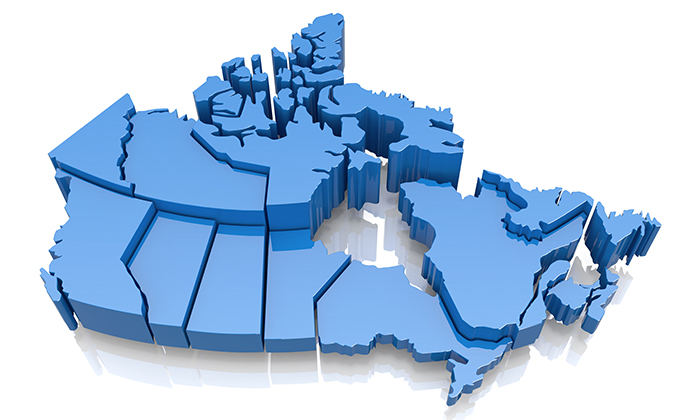
Planning your project and completing your Data Access Request (DAR) is similar to completing a major grant funding application — it takes time, planning, and meticulous attention to detail. A major obstacle to timely access to data is an inadequate, or incomplete, application.
The Data Steward(s) require an exact description of the data required for a project in order to evaluate a request, and Population Data BC (PopData) needs a detailed description in order to prepare the appropriate data. A properly completed DAR will specify, in detail, the data needed for the research project, including a study population definition and a complete list of data files, fields and years of data.
Requests are assessed according to legislated requirements in the BC Freedom of Information and Protection of Privacy Act (FIPPA), which only allows the disclosure of personal information if certain conditions are met, including: the exact nature of the data being requested, and how it will be used to fulfill the aims of the research project. The level of information in a standard research protocol is not sufficiently detailed to meet these two requirements. The DAR meets those needs and ensures that Researchers are provided with the data they need to fulfill their research project objectives.
The application process requires that Researchers:
- Become familiar with all material outlining access requirements, data sets, study population definitions, and privacy considerations.
- Ensure that the BC Ministry of Health (MoH) consent form requirements have been met (if applicable).
- Ensure that the ethics and peer review requirements of the Data Steward(s) have been met.
Looking for pan-Canadian data for your project?
The Data Access Support Hub (DASH) is a single entry point for researchers interested in multi-jurisdictional research. It is comprised of members from data centres across Canada who work in a coordinated effort to respond to queries and facilitate data access requests. For more information: https://dash.hdrn.ca or email dash@hdrn.ca.
- Timelines
-
Completion of a DAR, the associated approvals process and data provisioning, can be a lengthy process and take some months. If you would like a rough guide on how long data access for your project may take, please contact our Data Access Unit at dataaccess@popdata.bc.ca.
For advice and tips on how to reduce timelines, go to: application processing.
- Feasibility and cost estimates
-
Please note that PopData strongly recommends that Researchers request a Feasibility and Cost Estimate Letter for grant applications. Researchers may request this online. PopData is usually able to provide the letter within 1 to 2 weeks. Go to fees and charges, or talk to a Data Access Unit (DAU) staff member for more information.
- Applications involving external data
-
You may request linkage to data which is not internally managed by PopData or HDPBC. There are two likely types of ‘external’ data sources to which a researcher would seek linkage:
- Data from a public body which is not covered by an existing Information Sharing Agreement with PopData/HDPBC
- Researcher-collected data
Linking data from a public body which is not covered by an Information Sharing Agreement with PopData/HDPBC
The review process is similar to that for data already internally-managed by PopData or HDPBC, with Data Stewards performing their adjudication function. In parallel to working with PopData to develop the DAR, you are advised to contact the external data provider to discuss the feasibility of your request. The Data Access Unit will work with you and the public body to facilitate application review, agreements, data transfer and data linkage.
When the public body approves the data request, PopData/HDPBC additionally requires a project-specific Information Sharing Agreement with the data provider in order to transfer the data to PopData/HDPBC for linkage.
Researcher-collected data
For linkage to Researcher-collected data, there are additional requirements:
- Compliance with relevant legislation(s) for Researcher-collected data must be considered prior to application. For example, data originally collected from a physician who is not employed by a public body, will need to be in compliance with the Personal Information Protection Act (PIPA), in addition to meeting the requirements of FIPPA, upon approval from the public body for data linkage.
- You will need to provide evidence of written, informed consent to link the Researcher-collected data for the specified research purposes. If consent has not been obtained, you will need to provide an explanation and a justification for why consent should be viewed as impracticable, and should be waived. For more information, go to: Consent form requirements.
* For PopData projects only, if consents and relevant legislation allows, and the data are of sufficient interest, PopData may initiate discussions with the public body, or you as the Researcher, in order to make these data available to other researchers via PopData. This would involve negotiation of Information Sharing Agreement(s).
- Identifying the data required
-
When planning a DAR, Researchers should start with answering two questions:
- What is the study population for the research study?
- What data is needed for the study population?
The study population
A study population is the group of subjects that the Researcher wishes to include in their analyses. The subjects usually share at least one common characteristic, which may be as simple as age, or more complex, such as the set of people with certain health conditions. For example, a study population may be defined as:
- All residents of BC between 2000 and 2020
- All residents of BC aged 65 years and over diagnosed with Type 2 diabetes between 2000 and 2020
- All residents of BC aged 65 years and over diagnosed with Type 2 diabetes who resided in Interior Health Authority between 2000 and 2020
A project may also include more than one study population for control or comparative purposes.
After the study population is finalized, the Researcher should determine the preliminary methodology for the study population. Some key considerations include:
- What data source(s) will be used to create the study population?
- Is the study population going to be created based on data held by PopData/HDPBC, an external data source from a public body, Research-collected data (e.g. consented participants recruited by the Researcher), or a combination of these?
- What are the inclusion/exclusion criteria and codes to be used?
- Is the data available for the whole study time period? Has the data remained stable and consistent across all years? Are there changes in data availability and coding?
- Are there potential limitations in the data that will impact the completeness or validity of the study population?
At the DAR planning stage, Researchers do not need to finalize the study population methodology. However, they should at least confirm that the proposed methodology is feasible based on the available data. Go to: Data available for a complete list of data sets and variables available in each data set. Researchers are also encouraged to contact the Data Access Unit to discuss their plan.
For DARs going through the PopData process, PopData can assist the Researcher in creating a study population, go to: Stage 5 – Data provisioning and release for more information.
The Research Extract
The Research Extract is the actual data requested for the study population that will be used for analysis to answer the research question(s).
- For example, a Researcher may be interested in the number and average length of hospital stays of all individuals in a study population, and their use of physician services and prescribed medications over the preceding two years. In this case, the Research Extract will likely include linked data from the Discharge Abstract Database, Medical Services Plan (MSP), and PharmaNet.
The Research Extract may include data available from PopData/HDPBC, external data from a public body, Researcher-collected data, or a combination of these.
To determine what data is needed, go to: Data available. for a complete list of data available for request and information (including variables and years available) for each data set. Each data set was created for specific purposes and has its own limitations, a Researcher often needs to request multiple data sets for a more complete picture of the study population in order to answer the research question(s).
If a Researcher requires data from an external data source, please contact the external data provider to discuss the request and confirm the feasibility of the proposed data linkage. The Data Access Unit can provide advice on the data linkage methodology and process.
- How much data to request
-
According to the principles of the BC Freedom of Information and Protection of Privacy Act, the Data Access Request (DAR) has been designed to help Researchers determine the minimum amount of data necessary to complete their research. The DAR specifically addresses what research data are needed, given a particular study population.
Researchers can request as much data as required to answer their research question(s). However, the more complex a request, the longer it may take for Data Steward review and data provisioning. The cost of a complex request will also likely be higher than for a simple request.
While there is some ambivalence about the design of a cohort, Researchers are encouraged to request something reasonably broad so that they can test the effect that different assumptions have on the composition of their study group.
The selection of data fields in the extract, however, must be restrictive. There is no reason, for example, to request a data field for physician numbers if it is clear that physician-specific analysis is not required to answer the research question.

